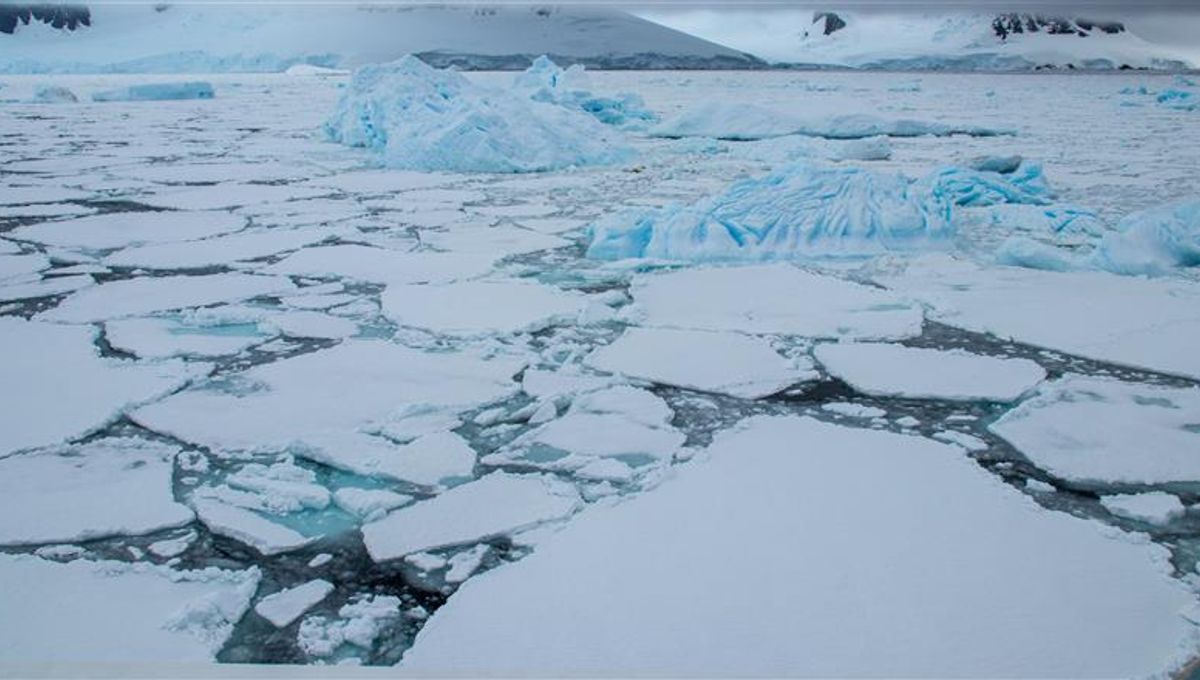
It may be odd to think about, but the strangest of the strange creatures, octopuses, may hold information related to Antarctica’s ice sheets. In a new study, scientists have examined the genes of one species of tentacular cephalopods that live in this cold environment, and they have reached some worrying conclusions.
According to the paper, a geographically isolated population of octopuses, the Turquet’s octopus, mated freely around 125,000 years ago, at a time when three seas surrounding the continent were connected by a temporary corridor through the ice. At this time, global temperatures were similar to those we have today.
The results suggest the West Antarctic Ice Sheet (WAIS) may be closer to collapse than previously thought. If this enormous marine-based ice sheet were to collapse, then it would result in a 3.3-5-meter (10.8-16.4 feet) rise in global sea levels – which would drastically transform the world map as we know it.
That, the authors urge, is the likely outcome if the world is not able to hold human-caused global warming to the 1.5 degrees Celsius target of the Paris Agreement.
The team’s research is novel. As an evolutionary biologist focused on marine invertebrates, lead author Sally Lau of James Cook University in Australia explained to AFP: “I understand and then apply DNA and biology as a proxy of changes to Antarctica in the past.”
In particular, the Turquet’s octopus (Pareledone turqueti) was an ideal candidate for this study as the species is found in the waters around the continent and we already know much about it, including its lifespan (12 years) and when it emerged as a species (around 4 million years ago).
When the ice sheet originally collapsed, this species of small octopus (they are about half a foot long, or 15 centimeters, without their arms) were able to interbreed for thousands of years. Then, when the ice reformed, the animals were isolated again. This story of connection and separation is recorded in their unique genes.
Lau and colleagues sequenced the DNA across the genomes of 96 samples of Turquet’s octopuses that were collected from animals that had accidentally been caught by fishing vessels and then stored in museums for 33 years.
During their analysis, they found evidence of trans-West Antarctic seaways that connected the Weddell, Amundsen, and Ross seas, suggesting the WAIS had collapsed on two separate occasions. The first was during the mid-Pliocene era – around 3-3.5 million years ago – and the second during the Last Interglacial – a warm spell that lasted from 129,000 to 116,000 years ago.
“This was the last time the planet was around 1.5 degrees warmer than pre-industrial levels,” Lau added.
Since the late 1700s, human activity – primarily by burning fossil fuels – has raised global temperatures by 1.2 Celsius.
Although there is other evidence that the WAIS has collapsed in the past, the findings were far from conclusive. That is, until now.
“This study provides empirical evidence indicating that the WAIS collapsed when the global mean temperature was similar to that of today, suggesting that the tipping point of future WAIS collapse is close,” the authors explain in their paper.
Despite the gravity of their conclusions, the study still leaves a few unanswered questions. Firstly, it is not clear whether temperature changes alone led to the collapse of the ancient ice sheets. Could changes in ocean currents and the complicated interaction between ice and solid ground play a role? It also isn’t clear whether the ensuing sea level rise would happen all at once or over a much longer period.
Regardless, in the face of climate change, the results are worth considering. As geoscientists Andrea Dutton of the University of Wisconsin-Madison and Robert DeConto of the University of Massachusetts, Amherst, wrote in an accompanying commentary piece: “This latest piece of evidence from octopus DNA stacks one more card on an already unstable house of cards.”
According to these commentators, this latest study is “pioneering”, and begs one question above all others – will ancient history repeat itself?
The study is published in Science.
Source Link: Octopus DNA Reveals Arctic Ice Sheet Could Collapse Sooner Than Expected